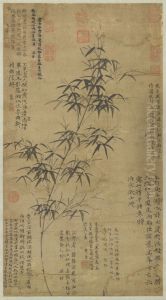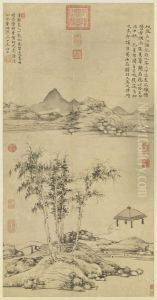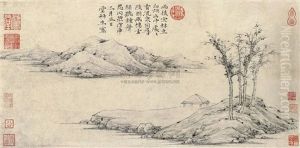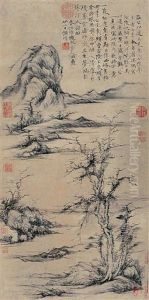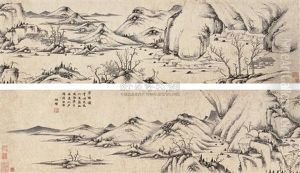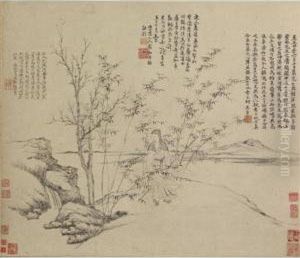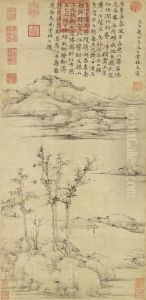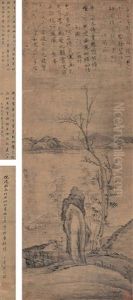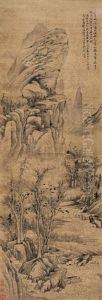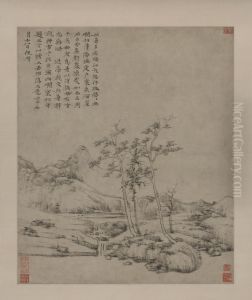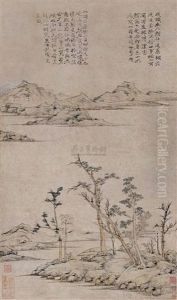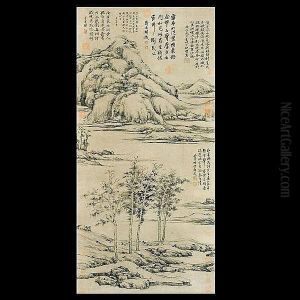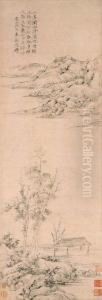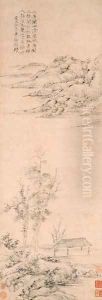Ni Zan Paintings
Ni Zan was a Chinese artist who lived during the Yuan Dynasty, which is known for being a period that was both turbulent due to the Mongol conquest and culturally rich as it facilitated the exchange of ideas across vast territories. Born into a wealthy family in Wuxi, Jiangsu province, Ni Zan was well-educated and grew up to be a cultivated scholar, poet, calligrapher, and painter.
Ni Zan's personal style is characterized by its unique austerity and refinement. His landscapes typically feature sparsely adorned and often quite barren scenery. He favored the use of dry brushwork and light ink to create paintings that are notable for their strong sense of composition and tranquility. He often depicted the same set of elements: trees, simple pavilions, and water, arranged in various compositions.
Throughout his life, Ni Zan was known for his strong personality and his adherence to principles of cleanliness and reclusion, which were reflected in his art. The political and social chaos of the Yuan Dynasty led him to lead a life of solitude. His disdain for the corruption he saw in the government at the time influenced his decision to withdraw from society. This reclusive nature intensified after he lost his fortune, and he eventually gave up his home to travel on a houseboat for the latter part of his life.
Ni Zan is often grouped with Huang Gongwang, Wu Zhen, and Wang Meng as one of the 'Four Masters of the Yuan Dynasty'. These artists created a new style of landscape painting that broke away from the previously dominant styles of the Song and Tang dynasties. Ni Zan's unique approach to painting has been hugely influential, and his works are considered some of the most exemplary of literati painting, a style associated with scholars and intellectuals of the time who were often amateur rather than professional artists.
Today, Ni Zan's paintings are highly valued and have become part of the canon of Chinese art history. His works are preserved in numerous museum collections, and his artistic principles continue to be studied and admired for their simplicity, elegance, and serene beauty.
